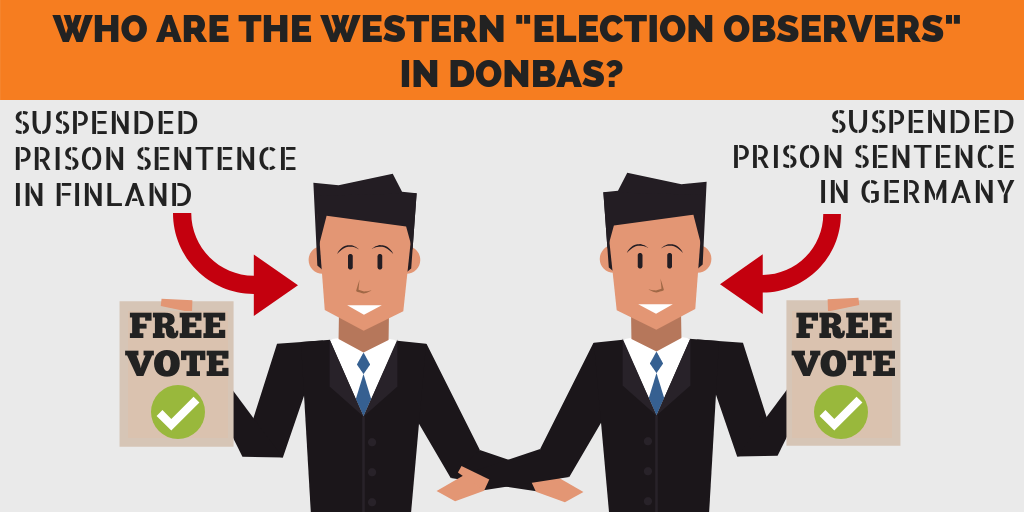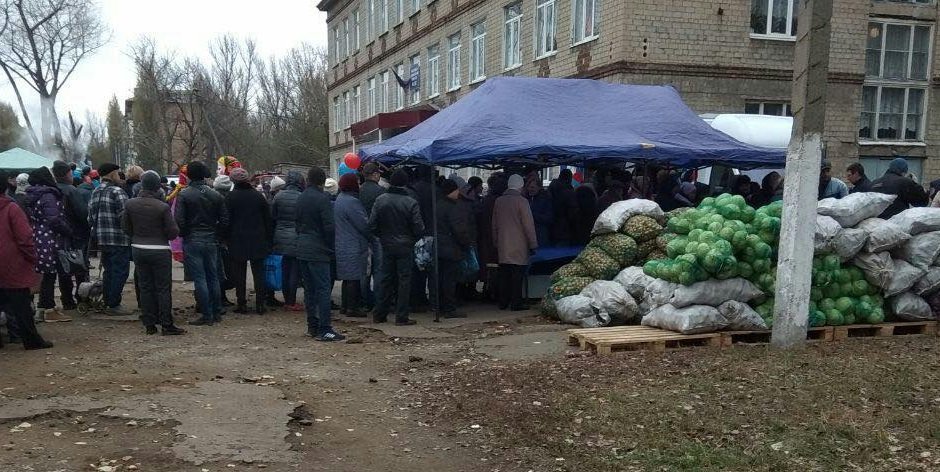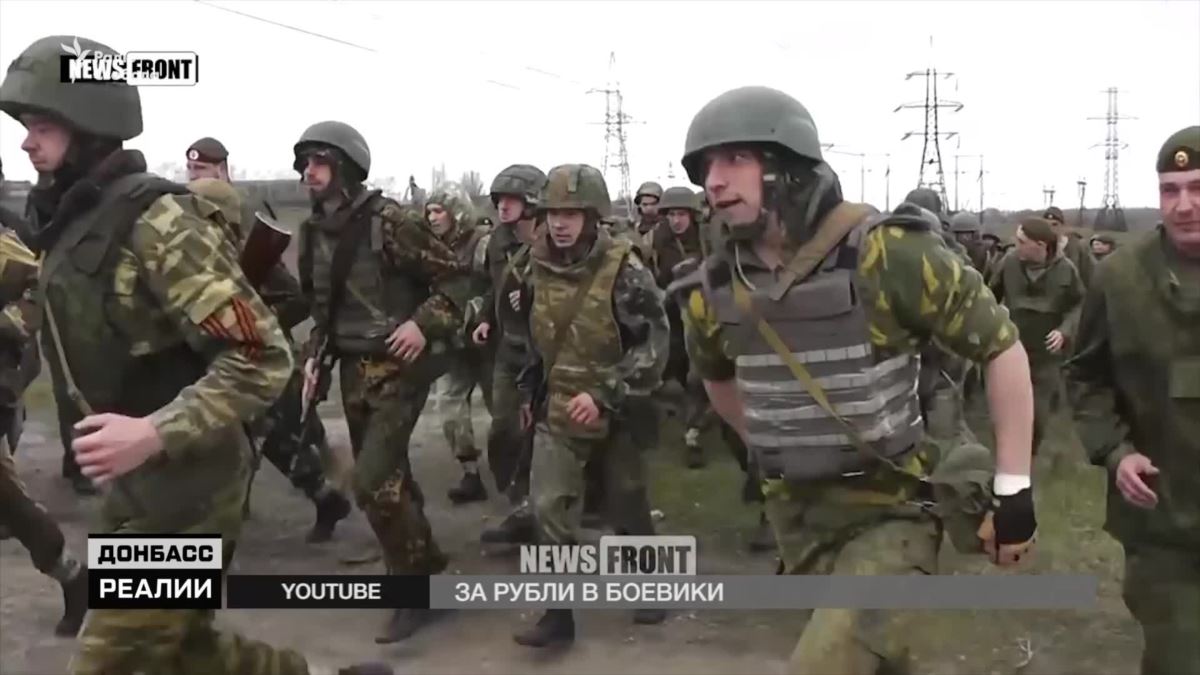In Ukraine, the Russia-backed separatists held illegitimate elections that were not recognized by the international community.
Read more on the sham "elections": Phony “elections” in Russia’s phony “republics” in Ukraine: a legitimization of the occupation
At the same time in Paris, world leaders gathered to commemorate the World War I centenary. Later at the Paris Peace Forum, Ukrainian President Petro Poroshenko discussed the unlawful elections with the French and German leaders – without Russia’s President, a signal of non-recognition of the so-called Donbas "elections."
The solution, in Russia’s disinformation style: attack the opponent
TV channel Rossiya 1 made bold false claims aiming to show how the Ukrainian President was ignored, dismissed and isolated by the other leaders in Paris. It showed misleading footage to falsely state that US President Donald Trump refused to shake Poroshenko’s hand – even the US President does not have hands several meters long, which was in fact the distance between the two presidents, as clearly shown in this image.
Heavyweight megaphones at play
The heavyweight megaphones of pro-Kremlin disinformation
were located on the ground in the Donbas, Ukraine during the same day. Seeking to legitimatize the non-recognized elections, so called “international election observers” were praising the separatists as election organizers.
“The Western countries today are dictatorships. A dictatorship of liberalism, of the military bloc of NATO; and this is our main threat today. There is pure democracy here in Donbas,” stated the person who was introduced as a ”Finnish political scientist.” His German colleague followed up, “Donbas elections comply with all the international standards.”
Read more on the fake "observers": Far right and left, conspiracy theorists among “foreign monitors” at Russia’s sham Donbas elections: Report (lists included)
Twitter bots at work
The German-language disinformation about the Donbas “elections” reached at least 110.000 impressions on Twitter. Was it really all uninformed users who walked into the trap of pro-Kremlin disinformation? We took a closer look at the 50 most active Twitter accounts sharing disinformation around the “elections” on Twitter.
Turns out the respective group of 50 had a pretty busy weekend on Twitter – a digital detox may be advisable. On Sunday alone, they tweeted almost 5500 times altogether – an average of 110 daily tweets per user. Globally, digital consumers spend 2:15 hours per day on social media. For the highly-engaged German tweeters, this would mean they posted about 51 times per hour on Sunday! This strongly suggests automation was at play.
Elections in general as a target
Elections in general were, in fact, a target for the disinformation campaign last week, with the aim to distract the audience from Russia’s attempts to influence several foreign elections. We heard that it was the UK secret services, not Russia, that interfered with the US presidential elections (actually there is a vast amount of evidence on Russia’s operation to interfere with the US elections
) and that it was the US that organized Brexit in order to destroy the EU.
We also heard that the US intelligence service has admitted there were no signs of foreign interference in the US mid-term elections – in reality the US statement said there was no compromising of US election infrastructure, but also clearly warned that foreign actors, Russia in particular, continue to try to influence voter perceptions through actions intended to sow discord.
Finally, the Russian-language media quickly picked up the alarming false message that 20 thousand armed migrants have gathered at the border of Croatia, getting ready to break into the EU. See the facts here – and we recommend too that the propagandists have a careful look at the EU map: Croatia is, in fact, an EU country.
Read also:
- Phony “elections” in Russia’s phony “republics” in Ukraine: a legitimization of the occupation
- Far right and left, conspiracy theorists among “foreign monitors” at Russia’s sham Donbas elections: Report
- Wishful thinking as a manipulation tool in Russian propaganda
- Intimidation as a propaganda tool in the Nordic countries
- Russian propaganda all too often promoted by ‘willing local participants,’ Imbi Paju says
- Russian propaganda in Montenegro, Sweden, and Finland – and how they’re fighting back
- A guide to Russian propaganda
- Top three ways Russia spreads disinformation about NATO military exercises
- When facts become interpretations: Russian propaganda ten years since war with Georgia
- Euromaidan and the Donbas war in the Italian media
- How Russian propaganda uses the victim-blaming strategy against Ukraine
- Week’s disinformation: NATO maneuvers “killed a child,” Ukraine to run “provocations” amid World Cup
- The civil war hoax: words that fooled the world
- “Russophobia” as a Russian propaganda tool







